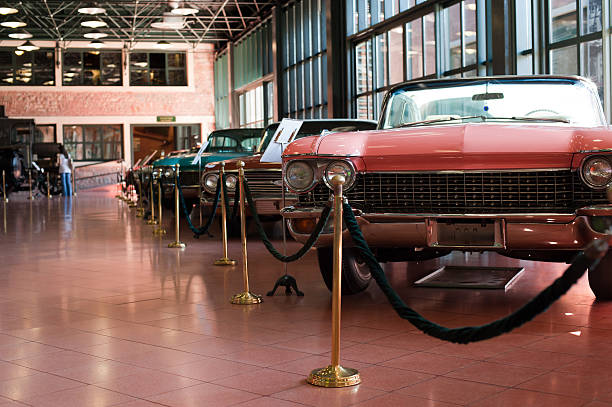Escolher um veículo usado é uma decisão financeiramente inteligente, atraindo tanto novos compradores quanto entusiastas de automóveis de luxo, especialmente em épocas de limitações orçamentárias. É essencial avaliar cuidadosamente os benefícios e desvantagens da compra de um carro de segunda mão, uma vez que o timing da aquisição pode ter um impacto significativo nessa escolha. Neste artigo, vamos analisar os momentos mais favoráveis para investir em um carro usado e fornecer orientações que ajudarão a assegurar a melhor negociação para o seu investimento.
1. Buying a Used Car
When buying a used car, it’s important to consider a few things before considering timing. Some of these include the car’s price, mileage, overall condition and maintenance history. While buying used can save you money up front, neglecting these things can cost you more in the long run.
Cost-effectiveness is one of the benefits of buying a used car.
One of the main reasons why people choose used cars is that they are cheaper. People who buy a used car typically pay less than someone who buys a new car, which saves money up front.
2. Loss of value
New cars lose a lot of value during the first few years of ownership. When you buy a used car, you avoid a steep depreciation curve. This means your car will lose value less quickly.
3. Insurance premium
Typically, insurance rates for used cars are lower than insurance rates for new cars. Insurance companies consider a car less risky to insure because it is worth less. This means lower insurance costs.
4. Reduce taxes
Normally, taxes and fees are lower for registering an older car than for a new one. This means you’ll save more money over time, making a used car a better financial choice.
5. High maintenance costs
It is common for older cars to need repairs and maintenance more often than new cars. Although the price may be lower initially, maintenance costs will increase over time.
6. Notarial services
Many used cars are sold “as is,” meaning they have no warranty or only limited warranty coverage. This exposes buyers to sudden mechanical problems shortly after purchase.
7. Outdated technology
Some of the latest safety features and technological advancements may not be available on older vehicles. Some buyers may not care about this, but others may like the convenience and safety that Hyundai offers.
8. Auction value
Although used cars depreciate more slowly than new cars, they are usually worth less when you want to sell them. If you want to sell the car one day, you may not get as much money back as you would if you bought a new model.
9. Buy a used car
Dealers typically have sales targets each month, giving buyers a chance to get a better deal toward the end of the month. To achieve their goals, sellers may be more willing to offer discounts or other incentives, giving the buyer more power in negotiations.
Sales at the end of the year
Likewise, dealers may offer deep discounts and other incentives at the end of the year to retire older models and make room for new ones. People who want to buy a used car right now can potentially save a lot of money.
10. Model changes
During new model launches, dealers may offer discounts on discontinued models to make room for new models. Buyers can take advantage of these discounts to purchase new and used vehicles at great prices.
11. Seasonal factors
Seasonal factors also influence the best time to buy a used car. For example, dealers may have to lower prices to entice people to buy in the winter, when sales tend to slow. Likewise, holiday sales are a great time to buy used cars at great prices.
FAQs
1. What can go wrong if I buy a used car?
There are some risks associated with buying a used car, such as the possibility of mechanical problems, higher maintenance costs and lower resale value.
2. Can I negotiate the price of my used car?
Yes, buyers can often get better deals on used cars, especially at the end of the month or at the end of the year when dealers are trying to reach their sales goals.
3. How do you ensure that your old car still drives well?
It is important to carefully inspect the car, review the maintenance history and possibly even have a pre-purchase inspection performed by a qualified mechanic.
4. Do you think it is better to buy from a dealer or from a private individual?
Each choice has pros and cons. Private sellers may offer lower prices but less protection, while dealers may offer longer warranties and more payment options.
5. What should I look for when inspecting a used car?
When looking at an old car, look for its overall condition, mileage, any signs of wear and tear, maintenance records, and any warning signs that could indicate deeper problems.
Conclusion
When is the best time to buy a used car? There is no one answer that fits all, but understanding the factors and timing can help you make a better choice. By looking at deals at the beginning and end of the year, when models change, and at different times of the year, you can save the most money and find the best used car for your needs and budget.



